Sattari on the Conference of Ambassadors and Heads of Agencies of Iran outside the Country:
Development of knowledge-based economy is the focal point for development of technology diplomacy.
Development of knowledge-based economy is the focal point for development of technology diplomacy.
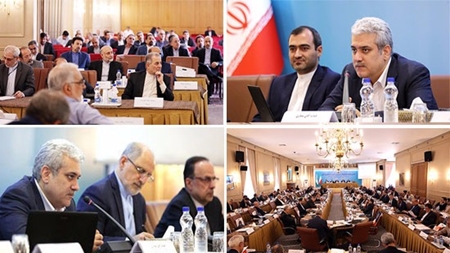
The vice president for science and technology affairs regarded the support of the ecosystem of innovation and entrepreneurship as the most important duty of the government during the conference attended by the ambassadors and heads of agencies of Iran outside the country.
According to the public relations and information center of the Vice-Presidency for science and technology affairs, Sorena Sattari, the vice president for science and technology affairs and head of the national elites foundation presented a lecture on the annual meeting of heads of agencies of Iran outside the country, which was held July 28th 2018.
In this event, the vice president for science and technology affairs first presented a report on the current progresses of the country in the area of science and technology, pointing out the significant improvement of position of Iran in the global innovation index in the current years and rate of scientific development was the main part of lecture of Sattari.
He talked about the massive capacity created in the area of startup companies in less than four years, recognizing the support of the innovation and entrepreneurship ecosystem as the most important responsibility of the government.
In addition, Sattari mentioned the index of public occupation, specialized occupation and solving social problems and the capacities created by some startups, demanding the provision of support by executive organizations, especially the ministry of foreign affairs in order to help the export power of these companies.
He emphasized that lack of attention to these structures leads to continued problems caused by resource- and oil-based economy, result of which is improper dealing of the private sector with the inefficient government section.
The vice president for science and technology affairs focused on the export capacities of knowledge-based companies, asserting: the only solution for survival from oil-based economy is developing knowledge-based companies and improving their export capacities.
He added: the program of the Vice-Presidency regarding the support of knowledge-based companies is based on creating the capacity by focusing on the private sector and avoiding the development of governmental structures.
Sattari also pointed out the corridor for development of export and technology transfer, export brokerages and another part of the enabling measures taken by the international collaboration center for science and technology to enhance knowledge-based companies in entering the international market.
President of the national elites foundation also explained about the capacity of Iranian experts outside the country, adding: in this regard, we need to emphasize that most of the statistics presented on the emigration of elites from the country are inaccurate and exaggerated. The number of Iranian students outside the country has had a significant reduction, compared to the first years of the Islamic revolution. Meanwhile, only one percent of Iranian students are studying abroad due to the capacity created in the higher education field inside the country. This shows a reduction by three times, compared to the international mean index.
Sattari emphasized that despite the low number of Iranian students outside the country, we have witnessed their increased level of quality. He continued: the program of the Vice-Presidency for this issue is creating the space for using the capacity of these experts inside the country, which is being realized by the science and technology international collaboration center. To date, the foundation has been laid for using the capacity of more than one thousand individuals with this expertise in the form of a system for cooperation with non-resident Iranian experts and entrepreneurs.
Arrangements of the Vice-Presidency for Science and Technology Affairs to Return Entrepreneurs from outside the Country
During the meeting, Ali Morteza Birang, vice deputy of the Vice-Presidency in international affairs, explained about the cooperation program with non-resident Iranian experts and entrepreneurs, mentioning: the Vice-Presidency does not have a negative attitude toward the issue of exit of experts from the country to gain experience and be active in other countries. However, we have aimed to create a cycle along with the natural phenomenon of exit of elites to lay the foundation for their return to the country.
He continued: in this regard, the most important program of the Vice-Presidency is reducing the risk and cost of opportunities for those who demand cooperation with the country in the first year of retuning to Iran through creating a solution for relevant challenges, such as finding an organization for the applicants to use their capacities, solving their military service problem, and helping the establishment of companies in a minimum time.
In the third section of the program, Saeed Sarkar, secretary of nanotechnology development headquarter, expressed the progresses of the country in areas of nano and the current capacities for enhancing international collaborations based on the second 10-year strategic document.
The Six Percent Share of Science Production in the World by Iran
He pointed out that the nanotechnology development headquarter has been established since 2003. He also talked about the significant rate of science development in the area of nano in the past 15 years by relying on international statistics, expressing: currently, we are ranked fourth in terms of science production at the international level. In total, Iran has a 6% share of this index in the world.
Following that, Sarkar appreciated the capacity of the foreign affairs ministry to present international programs at the level of various countries, suggesting some executive plans to develop international cooperation to the heads of agencies of Iran.
At the end of this two-hour program, 14 ambassadors asked their questions from the representatives of the Vice-Presidency for science and technology affairs.





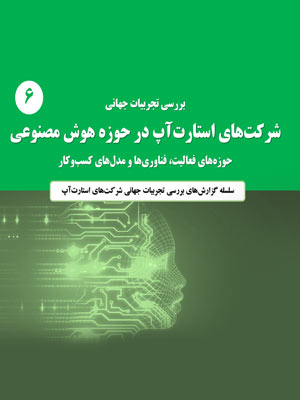


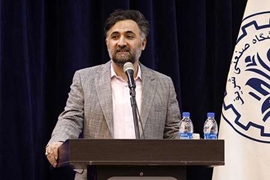
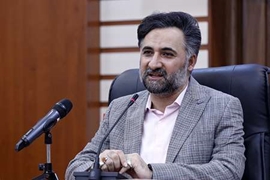
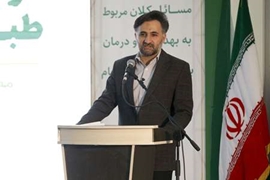
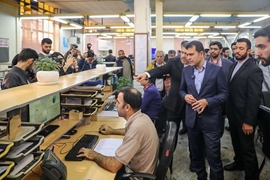
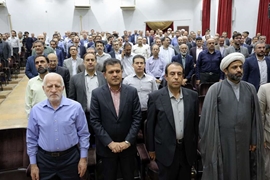
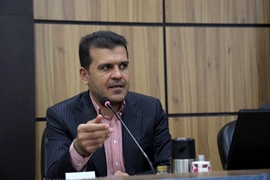
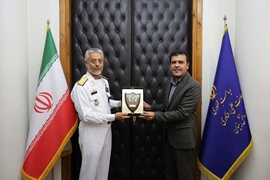
comment